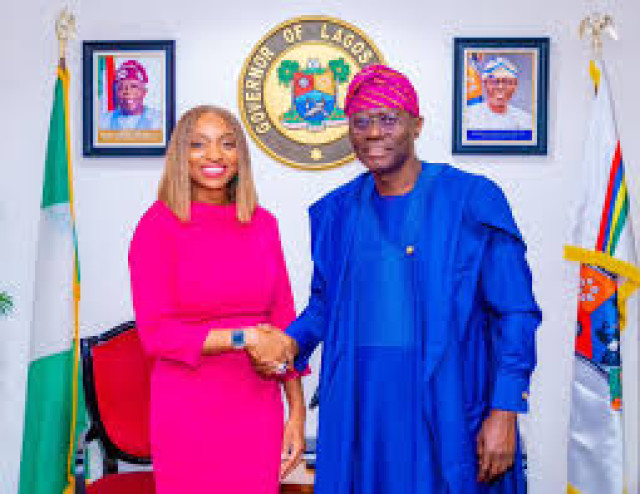LAGOS, Nigeria - Lagos State Governor Babajide Sanwo-Olu has stated that Nigeria must hasten its progress toward shared prosperity by shifting its economy away from oil dependency and enhancing its local manufacturing capabilities.
He emphasized the need for initiatives that foster the growth of small and medium enterprises (SMEs).
This was expressed during the third day of the 16th meeting of the national council on industry, trade, and investment, held on Wednesday in Lagos, organized by the federal ministry of industry, trade, and investment.
The Lagos State Government hosted the event under the theme: "Accelerating Diversification by Leveraging Industry, Trade, and Investment for Shared Prosperity."
Sanwo-Olu was represented by Olugbemiga Aina, the permanent secretary of the Lagos State ministry of cooperatives, commerce, trade, and investment.
He highlighted that several suggestions have emerged from the previous fifteen meetings. “We should convert the insightful ideas and resolutions established here into concrete actions that will improve our citizens' lives.
The path to a diversified and thriving economy requires more than just policy announcements; it necessitates consistent implementation, measurable results, and steadfast accountability,” Sanwo-Olu remarked.
He stressed that Nigeria's economic advancement could be achieved through cooperative efforts, innovation, and strategic collaborations between state and federal governments.
The governor pointed out that his administration has created a supportive environment for business growth, investment development, and persistent innovation.
Sanwo-Olu asserted that Lagos State aims to lead the transformation of Nigeria into a manufacturing hub and to be at the forefront of intra-African trade in line with the African Continental Free Trade Area Agreement.
Minister of industry, trade, and investment, Jumoke Oduwole, noted that Nigeria is currently facing high inflation, which President Bola Tinubu has been working to address over the past two years.
She mentioned that the president is implementing policies aimed at diversifying the economy away from heavy reliance on oil towards the non-oil sector. “Numerous opportunities and manufacturing capabilities are available for us to unlock.
At the Ministry of Trade, Industry, and Investment, we are laying the groundwork for our economic diversification. This is a national initiative that requires synchronization with states, not solely the responsibility of the federal government,” Oduwole stated.
The minister of state for industry, trade, and investment, John Owan Onoh, asserted that Nigeria has sufficient policies in place.
"Only when we achieve tangible results from the meeting can the Nigerian economy progress. Expectations are high,” he remarked.
“Currently, $10 billion is being spent on importing foreign products in Nigeria. This situation needs to be altered, and the outcomes of this meeting must be acted upon,” he insisted.
He called for increased financing for SMEs and affirmed Nigeria's openness to private sector involvement in business.
“Our ministry is committed to collaborating to build a thriving industrial sector and aims to establish Nigeria as the industrial hub of Africa,” said Mr. Onoh.




















